Review: 2012 Volkswagen Passat TDI SEL Premium
Last Monday’s review of the new 2012 Volkswagen Passat 2.5 SE found the large, value-priced German sedan to be roomy but unpolished. Today: the TDI in SEL Premium trim. In this form the “from $19,995*” new Passat gets a bit far from the segment’s mid-twenties sweet spot, with a list price of $32,965. But perhaps the turbodiesel engine and top-of-the-line interior transform the car?
In SEL Premium trim the new Passat exterior is slightly more attractive, thanks to one-inch-larger, more stylish wheels and an extra helping of chrome accents (as recommended by Maximum Bob). The latter and the car’s conservative shape team especially well with dark colors, including the tested car’s black paint.
Inside the Passat SEL Premium, the SE’s extensive faux metal trim is replaced by equally plentiful faux wood and its leatherette seating surfaces are replaced by a combination of leather and synthetic suede. The budget grade leather is hardly more convincing than the “wood.” I thought it was leatherette until I happened to notice on the window sticker “leather trimmed comfort sport seats” (which, though large and firm, are too lacking in contour to excel at either comfort or sport). It doesn’t help that light beige like that inside the tested car makes all but the best materials look cheap. Though the materials inside a Ford Fusion or Toyota Camry are little if any better, in the mid-thirties you can find some much nicer cabins. A key advantage shared with all 2012 Passats: an exceptional amount of legroom in both rows. Unfortunately, even in the SEL Premium the climate control knobs feel cheap and a storage tray occupies the space where rear air vents should be, so on hot days that expansive rear seat won’t be so comfortable. Another victim of cost-cutting: still no separate front and rear height adjustments on the power front seats, to adjust tilt independently of height, and still no height adjustment for the lumbar bulge.
The 400-watt Fender audio system deserves special mention. The bass was initially so overpowering and muddy that I assumed someone must have set it to 11. Then I tapped my way through the pages of the touchscreen control panel to discover that it was centered. For the first time ever I had to take an audio system’s bass down a few clicks to balance out its sound.
The 2.0-liter turbodiesel is good for 140 horsepower at 4,000 rpm (30 fewer but 1,700 lower, respectively, than the 2.5-liter gas engine) and 236 foot-pounds of torque at 1,500 rpm (59 more and 2,750 lower). As the specs suggest, the diesel feels especially strong off the line and at low speeds. Over 30 miles-per-hour or so the gas engine is quicker, but the diesel remains easily adequate and even at highway speeds does not feel sluggish. The TDI’s sound is clearly that of a diesel, especially when idling, but is much quieter and less clattery than the oil burners of decades past. The six-speed dual-clutch automated manual (DSG in VW parlance) behaves very similarly to the six-speed conventional automatic in the 2.5. Whether creeping along without a foot on the gas or shifting at full throttle it’s smooth. I attempted to trip it up, and failed. The DSG’s shifts are quicker than the conventional automatic’s, but when paired with the inherently slow-revving diesel this is of limited benefit.
When paired with the TDI, the DSG primarily benefits fuel economy by eliminating the fluid coupling of a torque converter. The EPA ratings of 30/40 are quite good for a large sedan. The trip computer reported even better numbers: high 30s in typical suburban driving and low 50s while cruising at 70. My suspicion: it lies.
Compared to the Passat 2.5 SE, the TDI SEL Premium rides more smoothly, handles with less agility, and generally feels like a larger, heavier, and more relaxed car. More competitive in some regards, but also less engaging. Frankly, I was startled by the difference between the two. My initial assumption: the TDI has much more weight in its nose, which can be expected to dull the steering, reduce agility, and settle the front ends tendency to bob a bit in the 2.5. Checking the spec sheet, the TDI does weigh nearly 180 pounds more, and the uplevel trim with its power passenger seat and sunroof probably adds another 70. But even 3,470 pounds isn’t heavy for such a large car. The tires might deserve some of the credit / blame, as the TDI SEL Premium’s wheels are shod with 235/45HR18 Bridgstone Turanza EL400 touring tires instead of the narrower ContiProContacts fitted to all trim levels of the 2.5. The Bridgestones grip the road a little better, but this is probably thanks to their greater width, as their design prioritizes ride over handling. It’s also possible that the TDI has additional sound insulation, to counteract its louder engine.
Still, it seemed unlikely that even all of these factors together could explain the difference in how the two cars felt through the steering wheel. Then, glancing over a photo of the TDI’s window sticker while writing this review I noticed “electric power steering.” Hmmmm…the system in the 2.5 felt too communicative to be electrically-assisted. The system in the TDI, not so much. Pull up the photo of the 2.5’s sticker, and my newfound hypothesis is confirmed: it retains “hydraulic power steering.” So if you were hoping to combine the refreshingly direct steering feel reported in the Passat 2.5 review with the efficiency of the TDI, too bad. Can’t get this combo. And the 280-horsepower V6, which system does it include? Unclear—vw.com says electric in some places, hydraulic in others. Most signs point towards electric. Hopefully they have this sorted out in the Chattanooga assembly plant.
Compared to the Passat’s other two engines, the TDI costs $2,300 more than the 2.5 and $755 less than the V6. Until someone else finally follows through and offers an affordable midsize sedan with a diesel engine in the United States (Honda, Nissan, and Subaru have all announced then canceled such plans), VW has this space to itself. This leaves midsize hybrid sedans as the Passat TDI’s closest competitors. A comparably-equipped 2011 Toyota Camry Hybrid lists for $460 more—but about $1,000 less if you compare the two invoice-to-invoice (Toyota dealers enjoy much fatter margins). Adjusting for feature differences using TrueDelta’s car price comparison tool and both shift about $900 in the VW’s favor. So with a feature-adjusted invoice-to-invoice comparison they’re very close. A loaded 2011 Ford Fusion Hybrid lists for about $500 more, but invoice-to-invoice it’s about $1,000 less. The feature adjustment goes $500 in the Ford’s favor. A 2011 Hyundai Sonata Hybrid with Premium Package checks in the lowest: about $1,300 less than the Passat TDI SEL Premium at MSRP and $1,900 less invoice-to-invoice. Feature differences between the two are a wash.
The Passat TDI SEL Premium looks and feels like a more expensive car than the 2.5 SE, but might nevertheless struggle to support its mid-thirties price tag. Even with the upgraded interior many of the cheap bits remain, and the rear seat, though very roomy, doesn’t get its own air vents. The TDI-DSG powertrain performs well and gets exceptional fuel economy given the size of the car. But the ride, though quieter and smoother than that in the SE, is still average at best. Most disappointing: the steering system that made the 2.5 SE fun and engaging on a curvy road isn’t included in the TDI. Instead, the TDI’s electric power steering cuts off communication with the front wheels and makes the car feel much larger and heavier. (In the EPS’s defense, this is partly because the TDI SEL Premium is about 250 pounds heavier.) Bottom line: if you’re seeking a roomy, highly efficient midsize sedan, the Passat TDI compares well against others’ hybrids and is priced similarly. But it’s not the stellar car it could be with a few minor upgrades and alterations.
Vehicle provided by Dan Kelley, Suburban VW in Farmington Hills, MI, 248-741-7903
Michael Karesh operates TrueDelta, an online source of automotive pricing and reliability data.
Michael Karesh lives in West Bloomfield, Michigan, with his wife and three children. In 2003 he received a Ph.D. from the University of Chicago. While in Chicago he worked at the National Opinion Research Center, a leader in the field of survey research. For his doctoral thesis, he spent a year-and-a-half inside an automaker studying how and how well it understood consumers when developing new products. While pursuing the degree he taught consumer behavior and product development at Oakland University. Since 1999, he has contributed auto reviews to Epinions, where he is currently one of two people in charge of the autos section. Since earning the degree he has continued to care for his children (school, gymnastics, tae-kwan-do...) and write reviews for Epinions and, more recently, The Truth About Cars while developing TrueDelta, a vehicle reliability and price comparison site.
More by Michael Karesh
Latest Car Reviews
Read moreLatest Product Reviews
Read moreRecent Comments
- Theflyersfan I wonder how many people recalled these after watching EuroCrash. There's someone one street over that has a similar yellow one of these, and you can tell he loves that car. It was just a tough sell - too expensive, way too heavy, zero passenger space, limited cargo bed, but for a chunk of the population, looked awesome. This was always meant to be a one and done car. Hopefully some are still running 20 years from now so we have a "remember when?" moment with them.
- Lorenzo A friend bought one of these new. Six months later he traded it in for a Chrysler PT Cruiser. He already had a 1998 Corvette, so I thought he just wanted more passenger space. It turned out someone broke into the SSR and stole $1500 of tools, without even breaking the lock. He figured nobody breaks into a PT Cruiser, but he had a custom trunk lock installed.
- Jeff Not bad just oil changes and tire rotations. Most of the recalls on my Maverick have been fixed with programming. Did have to buy 1 new tire for my Maverick got a nail in the sidewall.
- Carson D Some of my friends used to drive Tacomas. They bought them new about fifteen years ago, and they kept them for at least a decade. While it is true that they replaced their Tacomas with full-sized pickups that cost a fair amount of money, I don't think they'd have been Tacoma buyers in 2008 if a well-equipped 4x4 Tacoma cost the equivalent of $65K today. Call it a theory.
- Eliyahu A fine sedan made even nicer with the turbo. Honda could take a lesson in seat comfort.



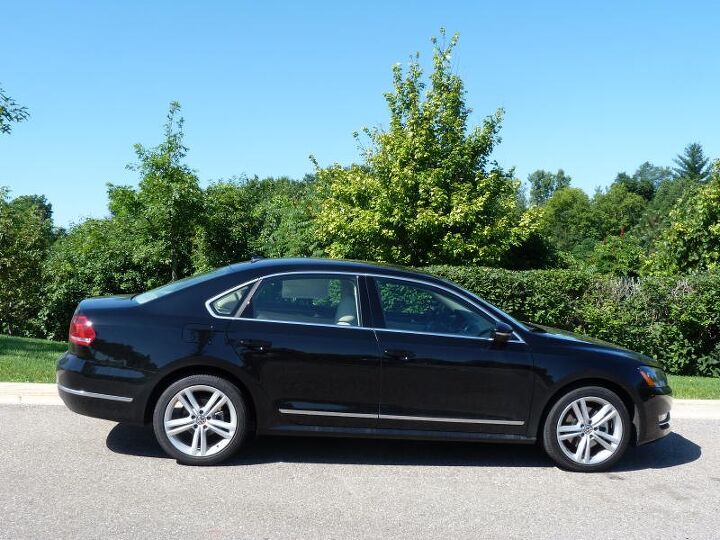

































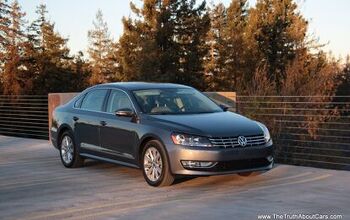
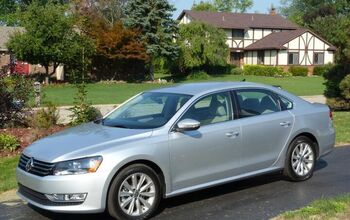
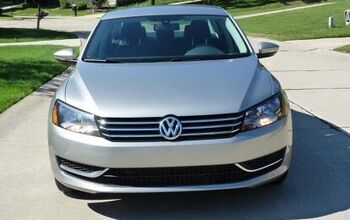
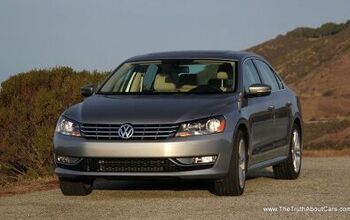



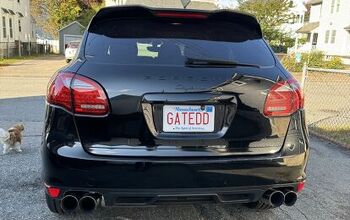





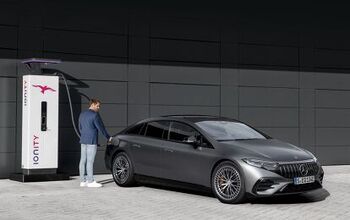
Comments
Join the conversation
Choices: 2010 Audi a4 premium with 2.0 l Quattro with 44,000 miles for $22,000 or new passat tdi sel? Married with two very young children. Thoughts?
I think VW is currently making some poor decisions on top of good ones. Diesel are good decisions but trying to fake their way into luxury segment like this article hints at is wrong. You buy diesels to commute, commute or run cheap. Yes they run cheap. The Jetta DSG diesel is super ...consistently 44+ combined mileage over 100,000 mile experience. I know. The best thing for a commuter is to avoid the extra stops on the way to work during the week to fill it up. How about close to 600 miles per tank..top that! So VW ..if want to make a luxury car do it and stop faking it! Otherwise give me a cost sensitive solid engineering which you can!!!